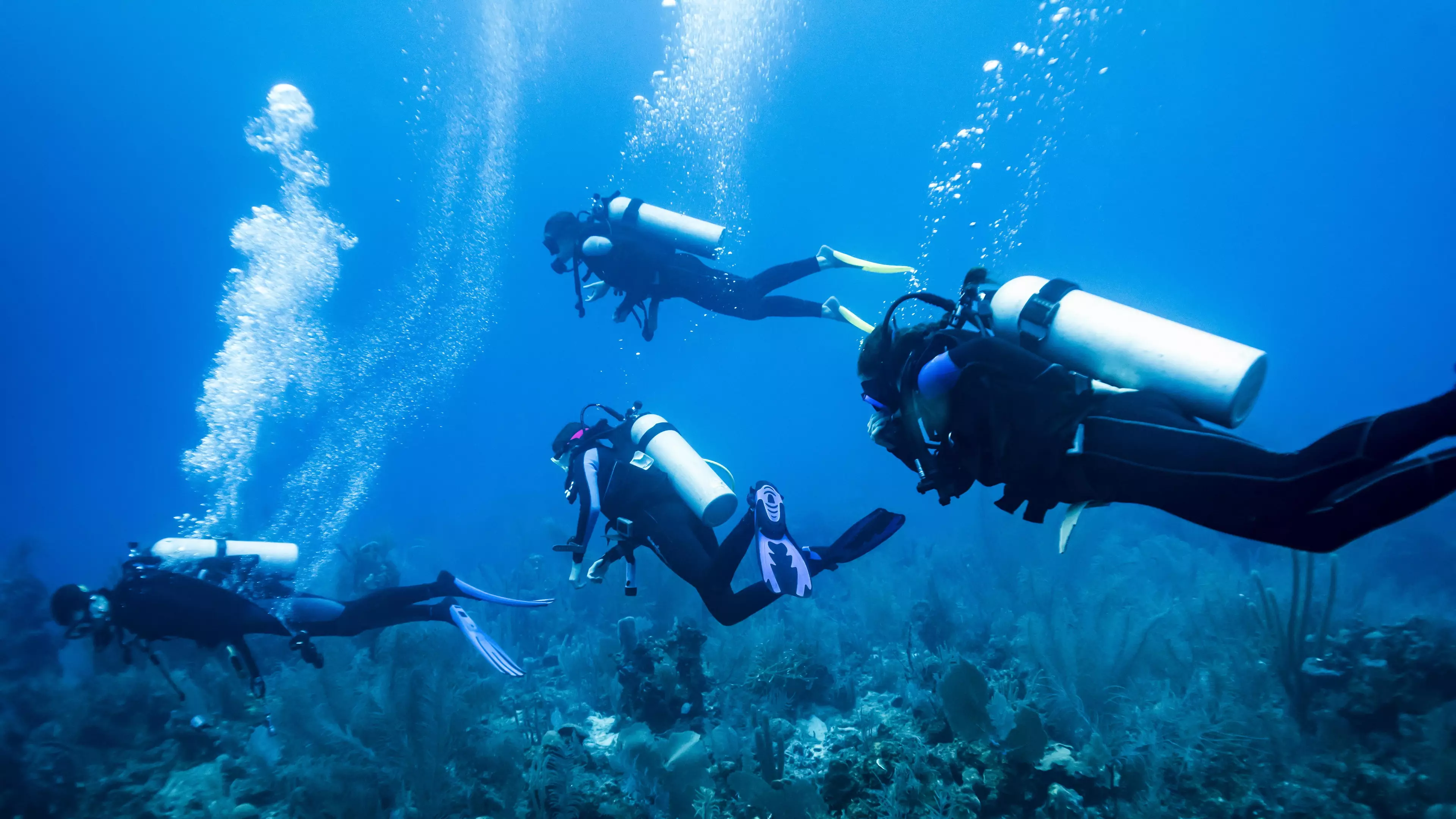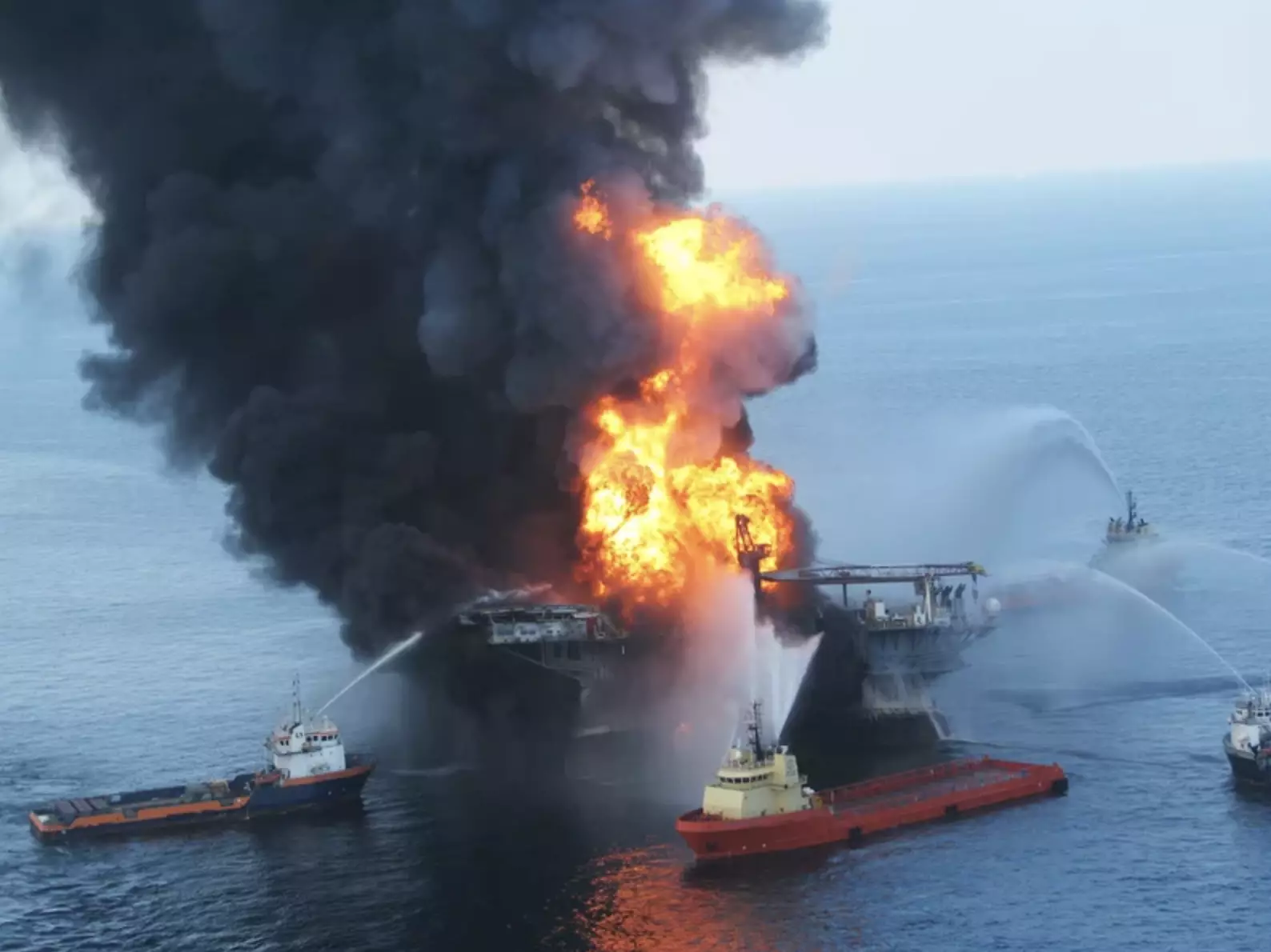
The clock is ticking for our planet's coral reef; but the small country of Belize has given the world some hope on just how quickly things can change for the better when governments partner with environmental movements to combat the effects of climate change.
Coral reefs are one of the earth's most ancient life forms but warm temperatures aren't helping the world's reef systems grow. In fact, they're doing the exact opposite.
Belize recognised that they were in hot water back in 2009, when UNESCO put the nation's reefs on its World Heritage in Danger List due to rising ocean temperatures.
Advert
"It was a wasteland," said Lisa Carne, the marine biologist who started the Belize environmental campaign Fragments of Hope, which aimed at reviving local coral reefs.
The state of the Belize coral reefs at that time gave Carne an idea; what if she could save the reef by replanting coral beds the same way gardeners replant flower beds? Carne eventually founded Fragments of Hope to bring her idea to life.
"Typically in ocean conservation, everyone works in specialised areas and they don't necessarily communicate with each other," said Dr. Douvere of UNESCO. "In Belize, what was so novel and new, was that we were able to build bridges between different entities and have everybody move forward together towards the implementation of the common vision for conservation."
But not everyone jumped on board straight away. Turns out, while Carne and her team planted coral, government officials had been secretly selling offshore oil opportunities. Those secret oil deals became public around the same time the Deepwater Horizon oil rig exploded and poured 4 million barrels of oil into the Gulf of Mexico in 2010.

The environmental trauma caused by the disaster, along with news of the government's secret oil deals, were a turning point for the nation's environmental views.
Advert
Environmental organisations then worked with Fragments of Hope to have the public vote on the issue, with almost one hundred percent of voters expressing their concern for the state of the reef. This created widespread public awareness around the dangers threatening the coral reefs, and formed a united voice that called on the government to take action.
The Belize government had no choice but to respond to public pressure, and with UNESCO's help, began to work with scientists and non-governmental organisations to address the real issues threatening the reef. It wasn't long before the Belize government put in place their reef conservation plans, and by 2017 made the unprecedented decision of banning all oil exploration, before enforcing laws designed to protect Belize's marine national parks.
These government steps, alongside the game changing work of the Fragments of Hope campaign, led UNESCO to remove the reefs of Belize from its World Heritage in Danger List and was the highlight of UNESCO's Marine World Heritage 2019 Annual Report.

A success owed to mainstream public support and a government willing to put the reef first.
Advert
As the Great Barrier Reef in Australia faces similar threats due to rising ocean temperatures, LADbible Australia is doing its part to bring attention to the world's largest living organism by opening a dialogue with the Australian Government to grant this living natural treasure Australian citizenship, and in doing so cement government commitment to make decisions in the interest of her health.
To support the CITIZEN REEF campaign, click here and help this great Aussie icon become a great Aussie citizen, so she can get the same rights and protections as every Aussie - most importantly, the right to life.
Featured Image Credit: PA ImagesTopics: government, Australia, Citizen Reef